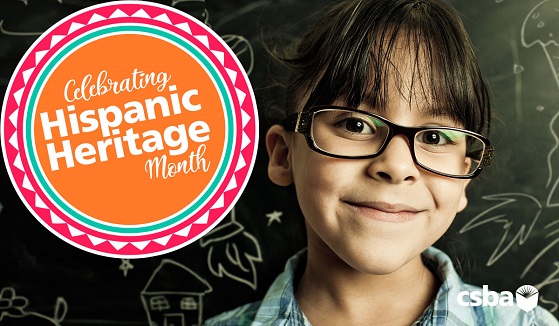There were close to 1.2 million English learners in California public schools during the 2018–19 school year, constituting more than 19 percent of total student enrollment. While the social and political landscapes are ever shifting around these children, advocates continue to push to ensure these students receive the best possible education.
The English Learner Leadership and Legacy Initiative was developed by Californians Together and the California Association for Bilingual Education to develop a new generation of well-informed and courageous leaders to build and sustain the movement for educational equity and excellence for English learners.
The genesis of the initiative was the desire of those who had long fought for the rights of English learners and pushed for opportunities for those children to pass along their knowledge — a culmination of years of both successful experiences and lessons learned from missteps — so that a new generation could continue to advocate for ELs.
“It comes from a place of passion for the cause, to ensure that English learners have access to the resources and the educational opportunities that they need to succeed,” said Ruth Barajas, project director of the ELLLI. “Those who started this — many of whom have over 40 years experience advocating for English learners — have so much knowledge, wisdom and life lessons to share that can help the next generation of leaders continue to improve education for English learners.”
An activist leader advocates for English learners when such opportunities present themselves, Barajas explained. Chances to be an advocate can be found in many situations — in one-on-one meetings with school personnel, when discussing legislation with policymakers or speaking in front of a school board.
“We recognize that school board members are the ultimate stakeholders because they represent the community,” Barajas said. “Our advocates want to work with their local leaders and school boards, so we encourage collaboration and building relationships with leaders and stakeholders at all levels.”
The benefits of bilingualism
Numerous studies have shown that bilingual students often experience cognitive, social and economic advantages over their peers. They tend to have better focus, memory and problem-solving skills; a better sense of self; better relationships with their parents; and are more likely to graduate high school and go to college. Research has also found that attendance rates among bilingual students are higher, children demonstrate fewer behavioral problems and parents are more involved.
In light of such findings, California voters overwhelmingly passed Proposition 58 in 2016, ending a nearly 20-year mandate that students who come to school speaking other languages receive instruction in English-only — a method research has since shown is ineffective in catching students up and helping reach language proficiency.
ELLLI’s roadmap for the future
Through the lessons they have learned through the English Learner Leadership and Legacy Initiative, Barajas said fellows will continue to push for policy changes that promote best practices in the education of English learners from pre-K through their years in college.
ELLLI fellows and partners are encouraged to take their training and engage in projects that can impact policy at state and local levels, including in areas such as:
- Guaranteeing equitable funding for English learner education via the development of Local Control and Accountability Plans
- Promoting early childhood education for English learners;
- Expanding family engagement efforts;
- Improving the pipeline to prepare and support excellent bilingual teachers and administrators;
- Ensuring that schools are safe for everyone, including immigrant children and their families; and
- Growing opportunities for access to bilingual learning.
Moving forward, Barajas said the organization will among other things continue to support its fellows — which include early- and mid-career classroom teachers, site and district administrators, school board members, county English learner directors, graduate students and California State University faculty — as they continue in their individual and collective advocacy work.





